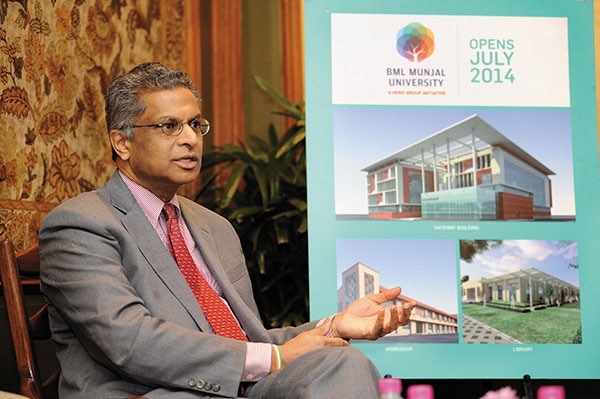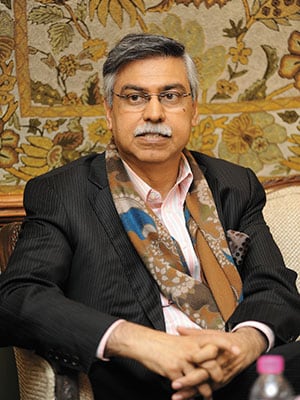
Hero Corp's Education Initiative with Imperial College London
Hero Corp Joint Managing Director Sunil Munjal and Dean of Imperial College Business School Prof G Anandalingam talk to Forbes India about business education and their vision for the new institution
The Delhi-based Munjal family’s first initiative in education dates back to 1964 when they opened a medical college. In early January, the promoters of the $5 billion Hero Group announced the launch of their most ambitious plan in the sector—the Brij Mohan Lall Munjal University, named after the founder and family patriarch, set up in partnership with the 106-year-old Imperial College London for its management course. Hero Corp Joint Managing Director Sunil Munjal and Dean of Imperial College Business School Prof G Anandalingam talk to Prince Mathews Thomas about business education and their vision for the new institution. Excerpts:
Q. How did the partnership come about?
Sunil Munjal: We wanted to ensure a good beginning that would help us build its reputation; we also wanted to build connectivity for the institution because we are living in a global world. We have a company in the UK and had spoken to friends to connect us to institutions there. Akshay (his son) got introduced to Gerry George, deputy dean of the business school, through the UK India Business Council. The conversation evolved into a partnership.

Q. What will be the nature of the collaboration?
SM: The ability to offer a relevant curriculum under the mentorship of a college like Imperial gives us the edge in getting high quality faculty and attracting the right kind of students.
GA: Students from India will spend a significant amount of time in the UK. Also, we will have students spending time here. This also applies to the faculty.
Q. How is business education evolving around the world?
GA: First, among well-known universities, there is a struggle to maintain what has helped them become world-class and also be sensitive to changes around them. Often, top universities are reluctant to change. Ethics is an important part of the curriculum. But there is a lot of lip service. Second, they have realised you can’t simply teach in the classroom. The focus is on experiential learning. Third, technology is overtaking education. At Imperial, we are going to launch global MBA from 2015. So students don’t have to come to London. Part of the education will be through recorded classrooms but there will also be interaction with the staff.
Q. For the new university too, ‘experiential learning’ is a focus.
SM: In every semester, no matter what discipline you are studying, you will be exposed to liberal arts and softer skills. There will be exposure to operating companies who we have already tied up with. Siemens is one of them. They will be involved in curriculum design to incorporate what they find missing in fresh hires. Also, students will work with these companies for longer periods. We want to make sure that the day they walk in, they are productive assets.
Q. How important will be research in the new university?
SM: We want to encourage three types of research. A large chunk of this would be practical, applied research. Countries like India and China need to convert ideas into actionable products and services.
(This story appears in the 30 November, -0001 issue of Forbes India. To visit our Archives, click here.)





